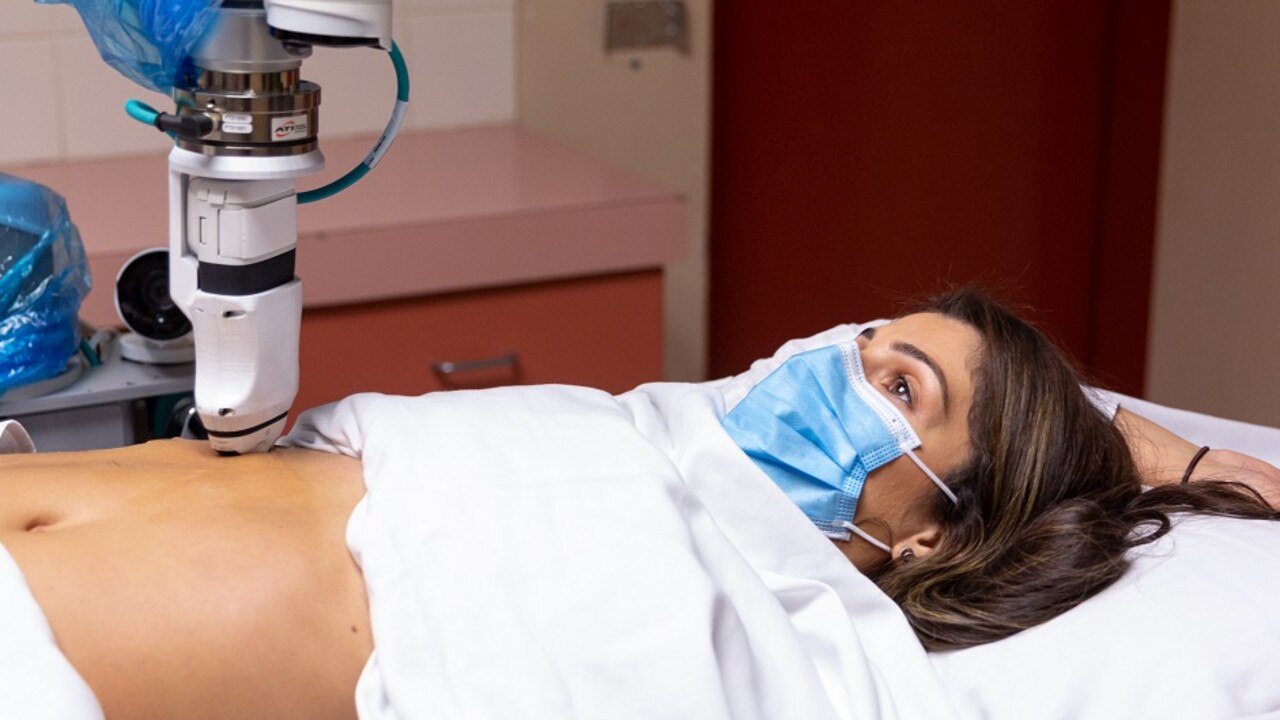Deakin HERCULES robot trialled at Austin Health
A robot developed in Geelong is being tested on real humans in a world-first trial. Here’s what it does.

A remote ultrasound robot that was developed in Geelong and could potentially help save lives is being tested on human patients.
It is hoped the world-first trial, being conducted at Austin Health in Melbourne, will show the technology is effective to roll out in areas where access to testing services can be limited.
The robot dubbed ‘HERCULES’ – Haptically-Enabled Robotically Controlled ULtrasound Examination System – was developed by researchers at Deakin University’s Institute for Intelligent Systems Research and Innovation (IISRI) in Waurn Ponds.
HERCULES is a remotely operated robotic arm that can carry out ultrasounds without patients needing to be in the same room, or even country, as clinicians.
Operators use a stylus that mimics the feel of a sonographer’s wand.
Sensory information is taken from the robot working on the patient, so the operator can feel how much force is being used and adjust accordingly.
Cameras at multiple angles help the sonographer get to the right spots, and a live feed allows multiple clinicians to observe the scanning in real time.

Lead developer Dr Parham Kebria said it was extremely difficult to get the necessary approvals for a robot like HERCULES to be tested on humans, so to be able to carry out a controlled trial with hospital patients was a major step.
“This gives us the opportunity to keep honing HERCULES’s development with the feedback and input from sonographers, radiologists and other specialists so we can modify the robot in a way that’s useful to their needs,” Dr Kebria said.
Austin Health’s radiology medical director, Associate Professor Natalie Yang, said the team was already getting positive feedback.
“They have received feedback that some participants prefer the robotic way, because they felt more comfortable not having to have a person come so close to them,” she said.
The Austin Health trial is focused on testing HERCULES for abdominal scans, typically used to assess the liver, kidneys and/or gall bladder.

Dr Kebria said while at the moment the sonographers were operating HERCULES from just a few metres away, separated by a curtain, they could be anywhere with a good internet connection.
“The goal is to show that these robots provide as good results — or better — than traditional methods, so they can be rolled out in regional and remote areas where it is hard for patients to access these services,” he said.
“So many people are suffering and losing their lives in these areas because of the lack of clinicians.”
More Coverage
Originally published as Deakin HERCULES robot trialled at Austin Health





